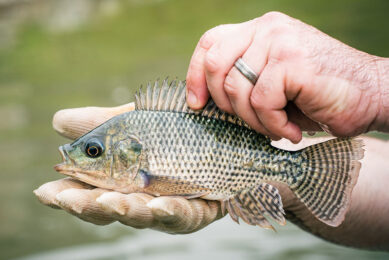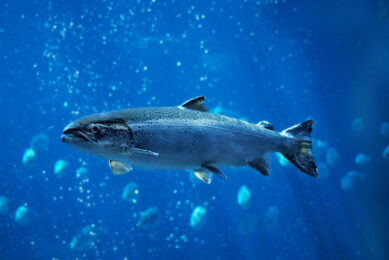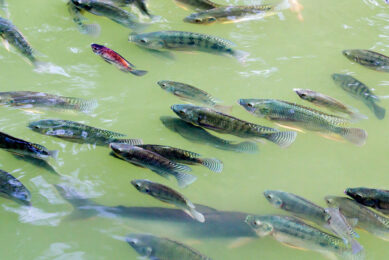Processing plants to please fish diets
Scientists from the University of Saskatchewan in Canada have reviewed the effects of processing technologies on nutritional properties of soybean meal, canola meal, peas, lupins and flax in aquaculture diets.
Replacement of fish meal with plant proteins in aquaculture diets presents
several problems. Firstly, aquaculture diets, particularly diets for carnivorous
fish species, are nutrient dense and may contain up to 450 g crude protein
(CP)/kg.
Such diets preclude the use of ingredients with only moderate CP
content, such as pulses including peas and faba beans or oilseed meals including
canola/rapeseed meal and flax.
Secondly, virtually all crops contain
heat-labile and heat-stable secondary compounds including protease inhibitors,
tannins, lectins, phytate, dietary fibre and
starch.
Extrusion
Removal of heat-labile secondary compounds
may be accomplished by extrusion or other heat treatment.
However,
elimination of heat-stable secondary compounds, and increasing the nutrient
concentration of diets, requires fractionation of crops.
Fractionation
technologies range from low technology processes such as dehulling to medium
technologies such as air classification to sophisticated technologies such as
aqueous and solvent protein purification.
Studies on the nutritional
value of processed plant proteins in various fish species have consistently
shown improved digestibility and growth compared to feeding unprocessed
ingredients.
The article can be obtained from ScienceDirect.
Join 26,000+ subscribers
Subscribe to our newsletter to stay updated about all the need-to-know content in the feed sector, three times a week. Beheer
Beheer









 WP Admin
WP Admin  Bewerk bericht
Bewerk bericht